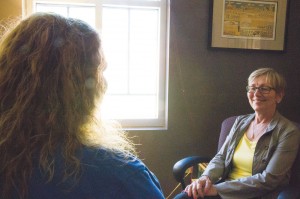
A report by the Texas Department of Public Safety on family violence and sexual assault shows that of the 185,453 incidents throughout the state in 2013, 12,446 occurred in Tarrant County. Seventy-three percent of victims were women, primarily between 20 and 24 years old. Two-point-four percent of the offenses were sexual.
The Texas Health and Human Services commission has since determined the number of incidents reported by the DPS represented only 19 percent of the total number of violent domestic incidents committed in the state. Domestic violence was the third-highest death toll in Texas that year.
There also were 17,844 sexual assaults reported in 2013, an increase of .1 percent from the previous year. Of the victims whose sexes were known, the majority were females ranging in age from 10 to 14. Ninety-six percent of offenders were males between the ages of 15 and 19. Tarrant County was witness to 1,470 of these cases. The 2014 crime report has yet to be released.
Patti Turner (not her real name) was a statistic at one point in her life. She was in an abusive relationship with a girlfriend while attending UNT and raising her daughter on her own. Being in a lesbian relationship, Turner said she shared others’ beliefs that domestic abuse was an issue predominantly facing heterosexual couples.
“Even though I am gay, I never thought about violence in my own community,” she said.
While the abuse Turner endured primarily took the form of manipulation and emotional torment, she also suffered physical abuse. On one occasion her girlfriend pulled a knife on her and held it to her stomach.
“She was threatening to kill me at that point,” Turner said.
This was around the same time her girlfriend got hold of a gun and threatened to kill herself if Turner broke up with her.
Though not a member of UNT’s abuse support program at the time, Turner worked with Maureen McGuinness, dean of students and assistant vice president for student affairs, on a discrete outreach campaign for survivors. Turner said she believes college support groups and rallies are helpful but don’t help victims who are still afraid to make their experiences public. The campaign included placing permanent posters in restrooms, where Turner said many victims seek privacy and safety.
It was through her campaign work that she began to realize how abusive her relationship was. This was after years of believing she was too strong and educated to become a victim. She was even enrolled in a women’s studies course at the time and knew how to identify the signs of domestic abuse.
“I’m not a shrinking violet,” she said, “and I just never thought I would experience this.”
It was her love for her daughter that drove her to end the relationship.
“If it was just me, I might have stayed,” she said. “But if my daughter was ever in this kind of relationship, I wouldn’t want her to be in that position.”
Turner said she finds the support system at her new university underwhelming. Since the closure of TWU’s domestic violence awareness and counseling program, she said she hasn’t received the kind of specialized counseling she needs.
“TWU is definitely missing the mark,” she said. “They have a lot to learn … from UNT’s [intimate partner violence] sexual assault campaign. A lot.”
TWU still offers counseling for survivors, said director of media relations Amanda Simpson, but the 2006 federal grant for TWU’s program, Resources to End Violence, expired in March. The school is trying to revive the program by seeking different grants.
******











